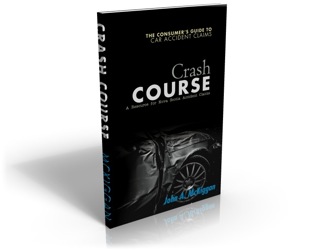What is my Nova Scotia Personal Injury Claim Worth?

As a personal injury lawyer, the two questions that I am asked most often when I first meet with clients are:
- How much is my claim worth? and
- How long will this take?
The honest answer to both of these questions, at least in the early stages of any personal injury claim is: “it depends”.
How much is my claim worth?
Once you understand how the courts assess damages in personal injury claims you can understand why it may take some time to be able to determine exactly what your claim is worth.
The goal of the court in any personal injury claim is to put the injured person (you) in the same position you would have been in had the injury not occurred. Obviously the court cannot heal or prevent your injury. So the court awards monetary compensation to reimburse you, as best as possible, for the economic and non-economic losses you have suffered as a result of your injury.
Non-Pecuniary Damages
The most common loss that people think of when they are injured is compensation for their “pain and suffering”. This type of loss is referred to by lawyers and judges as a “non-pecuniary” loss. It is a loss that cannot be precisely calculated by money or put another way, a loss that you cannot produce a receipt for.
I always explain to my clients that there is no such thing as a “Pain-O-Meter” that you can be hooked up to that shows precisely what your pain is worth in dollars and cents.
The courts have to look at how your injuries and your pain have effected your life and what residual problems of disability you have been left with as a result of your injuries.
It makes sense that the more catastrophic or devastating your injury is, the more it restricts your normal activities of daily living, and the longer the disability lasts, the more compensation you are entitled to receive.
What many of my clients are surprised to learn is that there may be caps or limits placed on the amount of compensation you can receive for your “pain and suffering”.
For example, certain if you have been in a car accident there are certain injuries that the Nova Scotia Insurance Act considers to be “minor”. If you have suffered a “minor injury” as defined under the legislation, the maximum compensation you can receive for your pain and suffering is $7,500.00 (adjusted for inflation). You can read more about the Minor Injury definition here: Nova Scotia’s New Minor Injury Compensation Law.
Pecuniary Damages
Another type of loss that you are entitled to be compensated for is any “pecuniary loss” you have suffered as a result of your injury.
A pecuniary loss is a direct out of pocket loss or expense that you have incurred as a result of your injury.
Some examples of pecuniary losses are:
- Income loss as a result of not being able to work;
- Medical expenses for things like physiotherapy or medication;
- Future care costs for ongoing rehabilitation expenses;
- Expenses for housekeeping or yard work that you can’t do because of your injuries.
- Repair costs for your car.
Special Damages
This type of compensation reimburses you for any expenses you have as a result of having to pursue a compensation claim. So this would include reimbursing you for the cost of any medical reports you need to obtain in order to prove the nature and extent of your injuries.
Punitive Damages
Sometimes a defendants conduct is so outrageous that the court will award additional damages not to compensate you for your injury but to punish the defendant for their behaviour.
Punitive damages are rarely awarded in negligence cases where the injury results because of a mistake or carelessness.
Punitive damages are usually only awarded in cases of intentional misconduct where it was obvious that harm could result. For example in cases where someone suffers injury as a result of sexual abuse, the court may award extra compensation for punitive damages to punish the abuser for their criminal conduct.
Conclusion
So you can see why it is so difficult to answer the question: “What is my claim worth?”
An experienced personal injury lawyer is going to have to gather a significant amount of information, medical and financial records in order to calculate what amount of compensation you are fairly and resonably entitled to receive.
Educational video
My senior associate, Mark Raftus has prepared a short educational video about damages in personal injury claims that I think you may find interesting.
Want more information?
We have been representing victims of serious personal injuries for more than 25 years. We wrote Crash Course:The Consumers Guide to Car Accident Claims in Nova Scotia to help educate car accident victims and their familes so they can have a better chance of receiving full and fair compensation.
Crash Course is available for sale on Amazon. Sale proceeds go to charity.
But if you live in Atlantic Canada, you can get a free copy of the book by contacting us through this blog, or by calling me toll free in Atlantic Canada at 1-877-423-2050.


